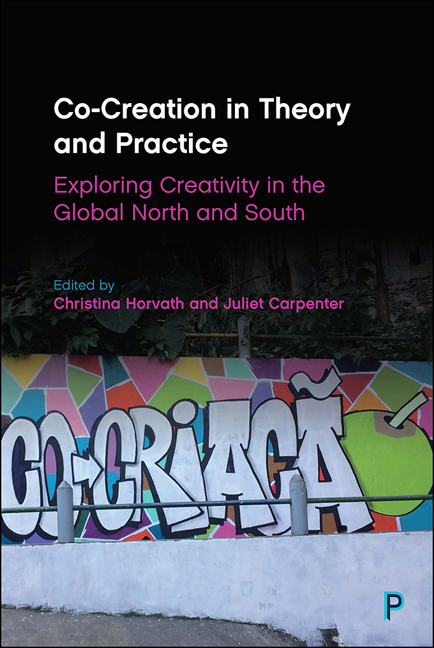5 - Doing Politics in Uncertain Times: Co-Creation, Agency and the Ontology of the City
Published online by Cambridge University Press: 18 March 2021
Summary
Introduction
When and where is Co-Creation a useful strategy? While the term comes originally from marketing and business studies, it has been developed as a strategy in diverse economic, administrative, governmental and artistic contexts, as part of what more generally has been called the ‘usological’ turn (Wright, 2013). Each of these spheres into which Co-Creation is deployed has its own discursive grammars, embedded teleologies, power struggles, and institutional dynamics; part of the point of introducing Co-Creation as a method in these spheres is to displace, challenge or transform these. What happens, then, if we deploy Co-Creation as a strategy or mot d’ordre for urban research? In a Co-Creation methodology, the individuals who could have been conceived as the objects of research (through interviews, surveys, observation) are repositioned instead as its Co-Creators. Together with this shift in authorship and authority, the form of knowledge produced is also displaced and multiplied: the outputs of Co-Creation research may include written articles, presentations, policy proposals and similar paradigmatic forms of knowledge, but they would also include several ‘embedded’ forms of knowledge such as artworks that remain in the urban setting under study, the interpersonal connections and networks created, the group dynamic and the empowerment of participants. These forms seem to be further from theoretical knowledge, and closer to the kind of knowledge involved in what has been called the ‘imaginative dimension of society’, or ‘social imaginaries’ by authors like Cornelius Castoriadis (1987) and more recently Charles Taylor (2003). If we understand the city not only as a material space of constructions but also as a lived symbolic space of relationships, it is plausible to suggest that the Co-Creation methodology in an urban setting is involved in both restaging the interactions that partly produce the city itself and revealing forms of knowledge at the same time as recreating the city through what aims to be a more egalitarian and empowering process. Co-Creation thus intervenes in what Engin Isin (2002) has called the ‘political space’ of the city, which arises from and mediates the material and symbolic spaces.
- Type
- Chapter
- Information
- Co-Creation in Theory and PracticeExploring Creativity in the Global North and South, pp. 71 - 86Publisher: Bristol University PressPrint publication year: 2020



